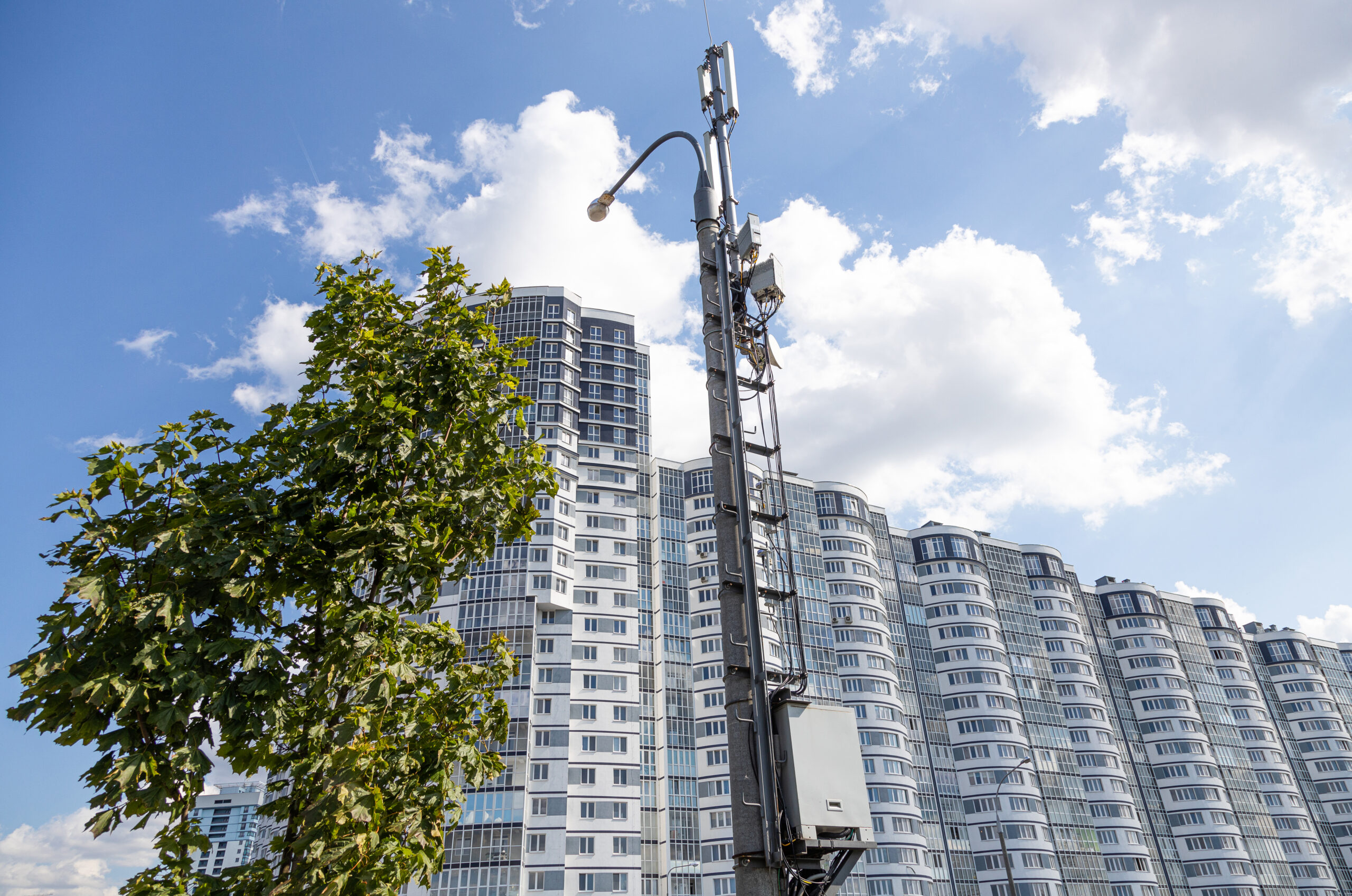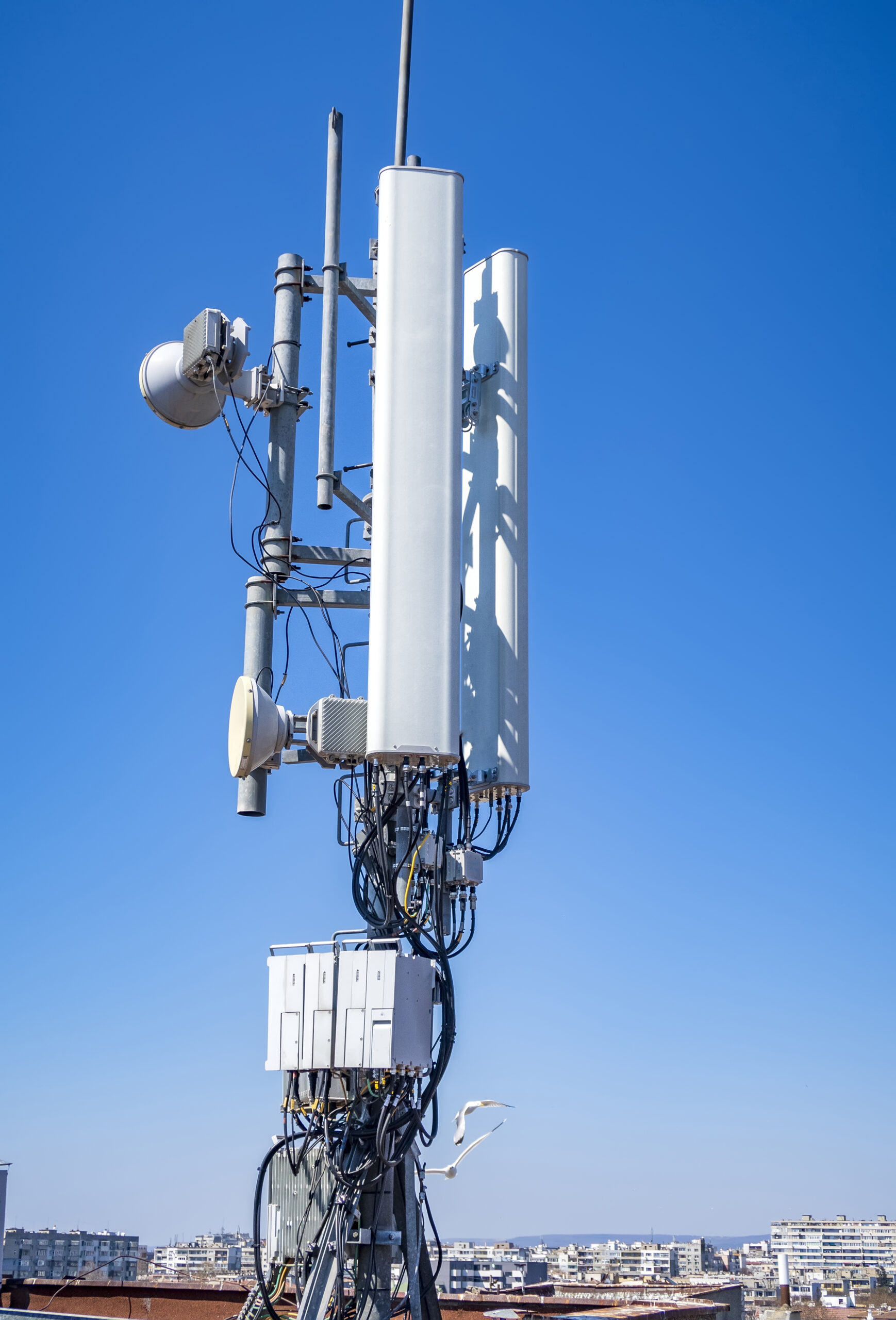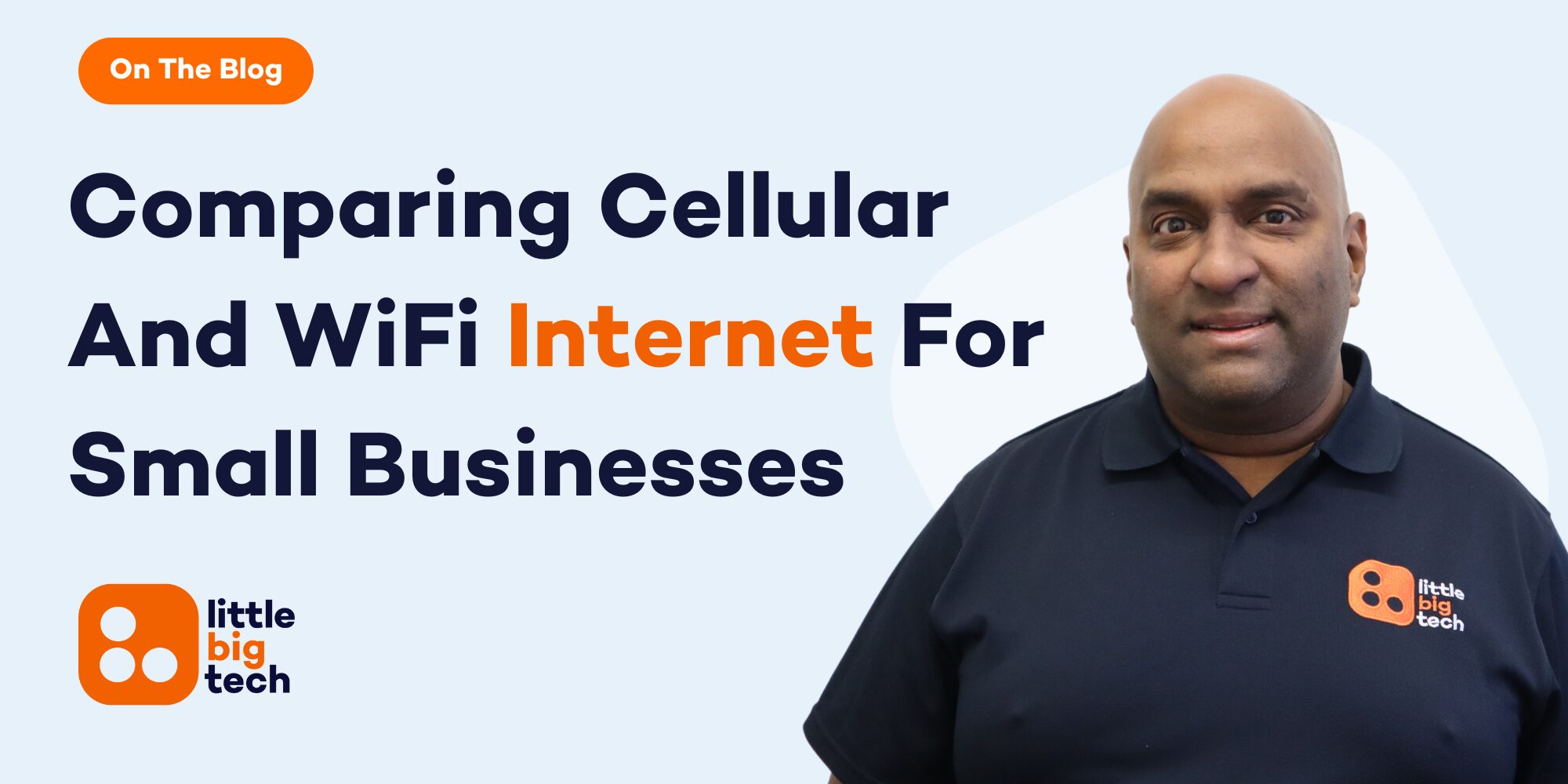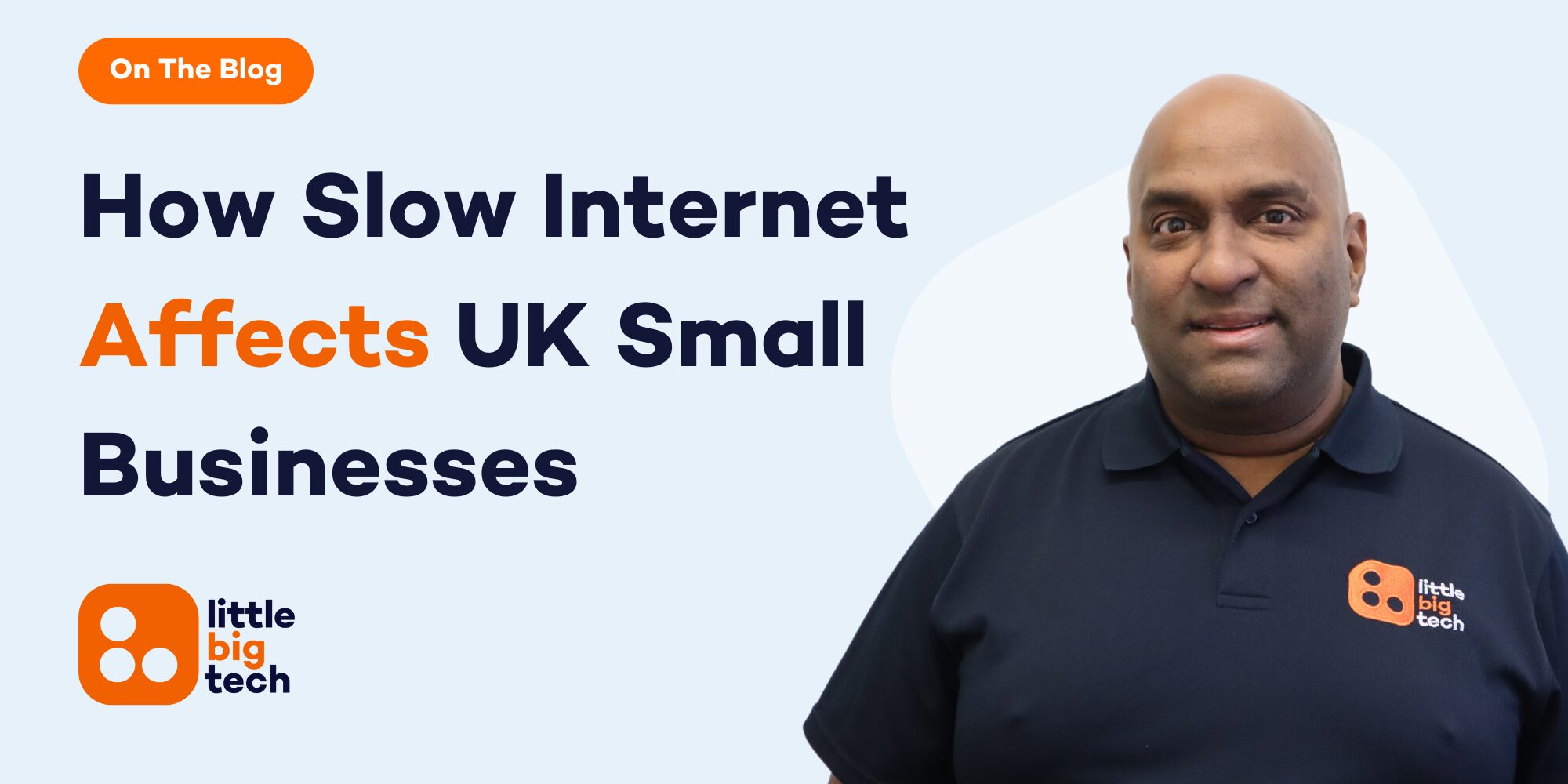What Does WiFi Internet Vs Cellular Internet Mean For A Startup Office?
WiFi Internet or Cellular Internet is a decision every startup office faces when choosing how to stay connected. The internet is the backbone of your operations, and for small businesses starting out, choosing the right connection matters from day one.
WiFi internet usually refers to a fixed broadband service connected via fibre or part-fibre line to your building. It delivers internet through a wireless router, giving access to all devices within range. This setup is common in most offices and offers strong, scalable performance over time.
Cellular internet uses mobile networks like 4G or 5G to deliver internet through a SIM-based device, such as a router with a data SIM or a portable hotspot. It’s faster to install, flexible to move, and ideal for businesses that need quick deployment without waiting for a wired line.
Startups often operate in shared offices, rented spaces, or pop-up locations. This makes the choice of internet connection more than a technical decision — it’s a strategic one. Speed, reliability, cost, and how quickly you can get started all play a part.
Both WiFi and cellular internet have their place. One might be better for flexibility, while the other may deliver more consistent performance. As your team grows and your operations expand, the wrong choice can lead to dropped calls, slow systems, or missed opportunities.
This article breaks down what each option involves, how they compare in setup and daily use, and what you should consider when choosing the right fit for your startup office. Whether you’re just moving into your first space or expanding your early team, getting your internet right from day one is a small decision with big impact.
Key Setup Differences Between WiFi And Cellular Internet In New Offices
Startups don’t always have the luxury of time or resources when setting up their office. Here are the practical differences between WiFi internet and cellular internet that affect how fast and easily your team can get connected:
Infrastructure requirements: WiFi internet requires a fixed line to be installed, which may involve digging, wall sockets, or external cabling. Cellular internet only needs a 4G or 5G signal and a SIM-enabled router.
Equipment costs: WiFi setups usually include a router provided by the ISP. Cellular internet may need a specialist mobile router or data hub, which can carry an upfront cost but requires less physical installation.
Setup timelines: Fibre or broadband installations can take anywhere from 5 to 30 days depending on the provider and building readiness. Cellular setups are usually same-day or next-day, making them perfect for urgent deployments.
Dependency on suppliers: WiFi internet ties you to installation schedules, engineer visits, and availability checks. Cellular internet uses existing mobile infrastructure, so you avoid supplier delays.
Portability and flexibility: Cellular routers can be unplugged and moved instantly — ideal for teams that change locations often. WiFi internet is tied to the physical address and not easy to move without notice or downtime.
Installation disruptions: WiFi installations can sometimes disrupt your day, especially in older buildings or multi-tenant blocks. Cellular setups involve little to no disruption and no construction.
If you need to be online in under 48 hours, cellular internet is the clear winner. But if your startup has secured a long-term space and needs solid performance across multiple rooms, WiFi becomes the better long-term fit.

When Cellular Internet Makes Sense For Small Startup Teams
Cellular internet is not just a temporary fix in many startup environments, it is the most practical and reliable option for the early stages of growth. Here’s when it makes the most sense:
Temporary or shared office spaces: If you’re working in a co-working space or a short-term lease, investing in wired broadband may not be allowed or worth the cost. Cellular gives you connectivity without commitment.
Pop-up locations or mobile setups: Startups involved in events, fieldwork, or pop-up retail can’t rely on fixed connections. Cellular routers can be packed and redeployed wherever needed.
Fast-moving early-stage teams: If you’re adding new locations quickly or working from flexible locations, you need internet that can adapt as you do. Cellular setups give your team internet wherever there’s mobile coverage.
Areas with limited fibre availability: Some city centres or rural units have poor access to fibre, slow installation timelines, or landlord restrictions. Cellular lets you skip those roadblocks and still get reliable speeds.
Low user numbers: If your team is under five people and your work is mostly cloud-based with occasional video, a good 5G connection may be enough for everything you do — at least for the next 6 to 12 months.
Backup internet for resilience: Even if you use WiFi as your main service, a cellular backup keeps your operations online in case of broadband outages or delays.
Cellular internet allows startups to launch fast, stay agile, and avoid the cost of fixed installations while still supporting the tools they rely on.
Benefits Of WiFi Internet Vs Cellular Internet For Startups
WiFi internet still holds major advantages for startups that have the space, time, and scale to install it. Here’s how WiFi compares to cellular internet when looking at long-term benefits for a growing small business:
Cost-effectiveness over time: While cellular may have lower upfront barriers, WiFi offers better long-term value per GB and generally lower monthly costs for higher data use.
Better bandwidth for multi-user teams: Fixed broadband supports higher speeds and more simultaneous users without degradation, making it ideal as your team grows beyond 5 to 10 people.
Easier expansion and upgrades: In WiFi internet vs cellular internet, WiFi networks are easier to extend with mesh setups or network switches. Scaling cellular often requires additional SIMs or routers.
Reliable for VoIP and video: Leased or fibre broadband is more stable during high-traffic video conferencing and voice calls, especially with multiple users in a call.
Compatible with full office networks: If you plan to use IP phones, printers, servers, or wired connections, a WiFi internet setup based on fibre offers better compatibility and lower latency.
Long-term SLAs and business support: Fixed broadband packages often come with proper business-grade SLAs, guaranteed response times, and dedicated technical support.
WiFi internet is the right choice for startups planning to scale in a fixed location, build out a full office network, or manage growing teams that need consistent, stable bandwidth.

How To Choose Between WiFi Internet Vs Cellular Internet For Your Startup
The right connection comes down to how your business operates now — and how you plan to grow. Here’s what to evaluate when making the decision:
Assess number of users and usage: If you’re a solo founder or two-person team, cellular may be enough. For teams over five using shared drives, video calls, and VoIP, WiFi becomes more efficient.
Factor in growth plans: If you’re expecting to double your team in six months, it might be smarter to invest in fixed infrastructure now rather than reconfigure later.
Understand downtime risks: Fibre and WiFi setups with SLAs reduce the chance of major outages. If downtime would seriously disrupt sales, customer service, or operations, that should guide your choice.
Budget vs reliability: Cellular has low setup costs but higher long-term per-GB charges. WiFi may cost more upfront, but it delivers greater speed, stability, and cost control in the long run.
Evaluate your location: If fibre installation is slow, unavailable, or blocked by the landlord, cellular gives you a way forward without delay.
Get expert input before signing contracts: Providers like Little Big Tech can evaluate your building, your provider options, and your team’s needs to help you choose the best setup. You may even benefit from a dual solution — WiFi for core operations and cellular as a live backup.
Choosing the right connection at the start can save you months of headaches later. Think long-term, ask the right questions, and make sure your internet supports how you really work.
Let Us Help You Connect Your Startup Office With The Right Internet
We know what it’s like setting up a startup office. Everything moves fast, space is limited, and you need your internet working from the moment the laptops open. Whether you’re trying to get a signal in a rented office, a temporary space, or your first company HQ, we’re here to help you get connected quickly and reliably.
At Little Big Tech, we specialise in helping startups and small businesses choose the right internet for their setup. We don’t believe in pushing one option over another, we look at your team size, your usage, your location, and your goals, then recommend what works best.
We can install business-grade WiFi with guaranteed performance, or deliver rapid-deployment 4G and 5G routers with next-day activation. If you’re scaling, we’ll show you which options are most cost-effective in the long run, and how to build in flexibility for the future.
We also offer backup connectivity, managed support, and full network design, so your startup runs like a business twice its size.
Call Little Big Tech today on 03333 055 331 to talk about the right internet for your startup. We’ll help you connect your office, your team, and your business the right way, from day one.









